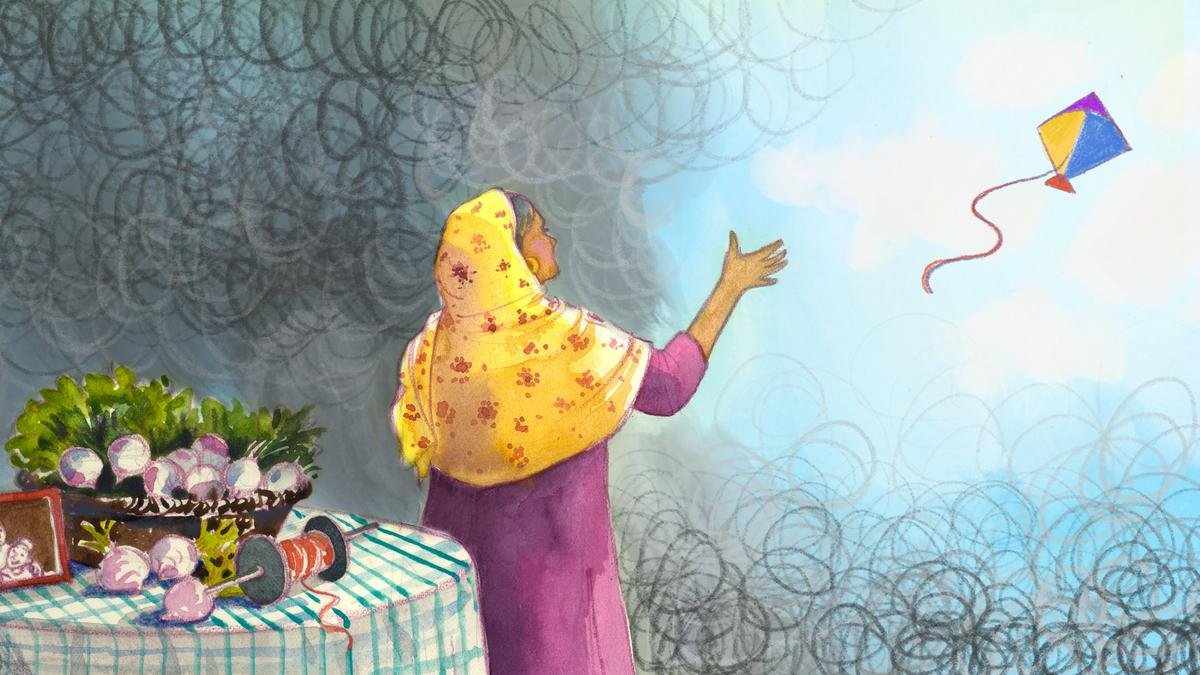It was a late September afternoon. Autumn had taken hold; the earth had shed her vibrant costumes from spring and summer, and was getting ready for some much needed rest. I was sitting on the verandah watching Phuphee pottering about in her kitchen garden. She walked towards me with a small kraenjul (wicker basket) full of turnips and a big smile on her face.
‘Waitch sa [look],’ she said, showing me her basket full of turnips.
‘Walle, gogji rogan josh rannao [come, let’s cook turnip rogan josh],’ she said, walking towards the kitchen. Inside, I watched her perform her magic and turn the humble turnip into a dish fit for a wedding feast. She was nearly done when one of the helpers came in to inform her that a lady was waiting for her. She motioned for me to join her and directed the helper to cook extra rice for lunch.
In Phuphee’s room, a woman was waiting. She lived locally. Her name was Asma. She was the headmistress of a small girls school on the outskirts of the village. After greeting her, Phuphee asked her how she could help.
For a while the woman was quiet, but you could see the storm clouds gather in the corners of her eyes until they could no longer be held back and they fell in reams. Phuphee watched her for a while and then slowly got up and went to sit next to her. She put her arm around her and held her close while she cried.

When Asma had exhausted all her tears she spoke. She was married and lived with her husband and two children. She had two brothers whom she loved dearly, but for the past decade or so everything had gone wrong in her relationship with them. She still spoke to the elder one, though he had stopped making any effort to be in her life. While the younger one, whom she had been very close to, had not only stopped speaking to her, but had at different points in time abused her trust and broken her heart.
She told Phuphee it had happened when he got married. She was sure his wife had cast some spell on him or poisoned his ears. Phuphee listened as Asma continued to speak about how she sometimes dreamt about the happier times they had when they were children and how much her heart ached for her brother. She asked Phuphee if she could give her a taaveez (talisman) to undo whatever spell had been cast on her brother. Or, if that wasn’t possible, could she be given something to make the pain stop.
When Asma had finished, Phuphee called out for the helper and asked her to serve lunch for everyone. Spells could not be broken and hearts cannot be mended on an empty stomach, she said.
The helper served the gogji rogan josh with hot rice and all of us had a second helping. As we ate, Phuphee talked about random things — the state of the roads, the weather, and everything that was happening in the world. When we were done, she turned to Asma and said, ‘When someone very dear to us does cruel things, unthinkable things, it is natural to look for reasons why. After all, we are not supposed to hurt the people we love, at least not intentionally.’
‘You know my dearest Asma, of course it is possible that some of the blame can be laid at your sister-in-law’s door, but not all of it. Your brother is not a child. He is a grown man with a will of his own, And while you hold your sister-in-law responsible, you must not absolve him of the accountability he has in his actions. Your heart hurts because you have lost your brother. You know, it sometimes happens that people die before they actually die. The brother you had, who was loving and kind, has gone. The person he is now is not your brother in any real sense. The memories you have, hold them close and honour them. Do not ever feel yourself to be weak because you feel hurt or you still feel the love, because it stems from a reality you once lived. You are not deluded, you are human.’

We sat quietly. I had so many questions, but I didn’t ask. I hoped Asma would ask Phuphee some more questions, but she didn’t. After lunch, they walked to the gate while I watched from the window. Phuphee handed her a small bag and bid her goodbye.
‘Did you give her a taaveez at the gate?’ I asked when she came back.
‘I gave her something better,’ she said, smiling. ‘I gave her some fresh gogji she could cook.’
Later that day, I sat thinking about what Phuphee had told Asma and I struggled to make sense of it. Twenty years later, on an autumn day, I too would come to understand that sometimes you can lose people without them dying. In that moment all you could do was acknowledge and honour the love you once felt for a person who, though still physically alive, was dead in every other way. And despite the confusion that ensued this terrible situation, you had to honour the person you once loved and grieve the person no longer present.
Saba Mahjoor, a Kashmiri living in England, spends her scant free time contemplating life’s vagaries.
Published – October 25, 2025 07:04 am IST
